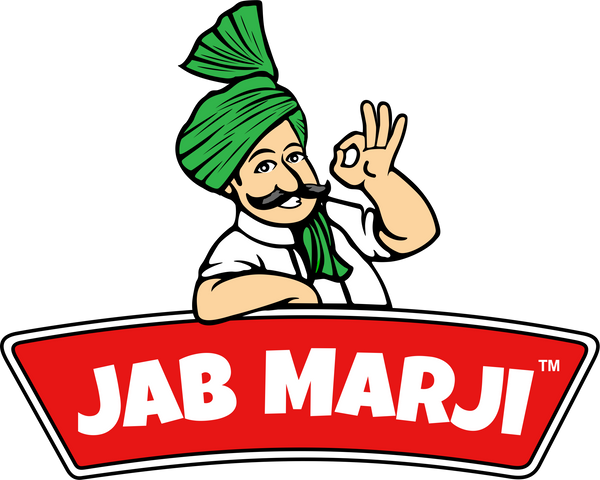The versatile and beloved Indian ingredient paneer has come to light in recent years for its possible health benefits, especially for those who are taking care of their diabetes. That being said, it's important to know how paneer fits into your diet and how it affects your blood sugar levels if you have diabetes. We'll explore the specifics of paneer and its usefulness for people with diabetes in this detailed guide.
Understanding Diabetes:
Let's review some fundamental information on diabetes before we look at the connection between paneer and the disease. Diabetes is a long-term medical disorder marked by high blood sugar. Diabetes mainly comes in two forms:
Type 1 Diabetes: This type occurs when the body doesn't produce insulin, a hormone needed to regulate blood sugar levels.
Type 2 Diabetes: In this type, the body either doesn't produce enough insulin or becomes resistant to insulin's effects.
Both types require careful management of diet, exercise, medication, and lifestyle choices to control blood sugar levels and prevent complications.
The Role of Diet in Diabetes Management:
A key component of diabetes management is diet. A well-balanced diet lowers the risk of health issues and aids in blood sugar control. Important food factors for people with diabetes include:
Carbohydrate Intake: Because carbs have a direct impact on blood sugar levels, it is important to monitor and regulate carbohydrate intake.
Consumption of Protein: Foods high in protein promote muscle health and fullness.
Healthy Fats: Including healthy fats, such those in avocados, nuts, and seeds, can help control weight and improve insulin sensitivity.
Is Paneer a Good Choice for Diabetics?
Indian cottage cheese, or paneer, is a well-liked dairy product that has a high protein level and a low carbohydrate content. For those with diabetes, these features make it an excellent option. Now let's explore paneer's nutritional benefits:
Nutritional Information (for a 100g serving):
Calories: Approximately 265 kcal
Protein: Around 18 grams
Carbohydrates: Less than 3 grams
Fat: Roughly 20 grams
Calcium: Provides approximately 20% of the recommended daily intake
Benefits of Paneer for Diabetics:
Low Glycemic Index: Paneer doesn't rapidly increase blood sugar levels when eaten because of its low glycemic index (GI).
High Protein Content: Protein slows down the absorption of carbohydrates and promotes fullness, which can help with weight management and help control blood sugar levels.
Rich in Calcium: Paneer is an excellent source of calcium, which is necessary for preserving bone health. This is especially true for those with diabetes, who may be more prone to issues relating to their bones.
How to Include Paneer in a Diabetic Diet:
While paneer offers several benefits, it's essential to consume it in moderation and as part of a balanced diet. Here are some tips for incorporating paneer into a diabetic-friendly meal plan:
-
Portion Control: Stick to appropriate portion sizes to avoid consuming excess calories and fat.
-
Combine with Fibrous Foods: Pair paneer with fiber-rich vegetables or whole grains to further slow down the digestion process and minimize blood sugar spikes.
-
Choose Low-Fat Options: Opt for low-fat paneer or prepare paneer dishes using minimal oil to reduce the overall fat content.
-
Incorporate Variety: Experiment with different recipes to prevent monotony and ensure a diverse nutrient intake.
-
Consultation with a Healthcare Provider:
Individualized dietary recommendations are crucial for managing diabetes effectively. Consultation with a registered dietitian or healthcare provider can help create a personalized meal plan tailored to your specific needs and preferences.
Conclusion:
Paneer can indeed be a part of a diabetic-friendly diet, thanks to its low carbohydrate content, high protein content, and other nutritional benefits. However, like any other food, it should be consumed in moderation as part of a well-rounded meal plan. By making informed dietary choices and maintaining regular monitoring, individuals with diabetes can effectively manage their condition and lead a healthy lifestyle. Remember, always consult with your healthcare provider before making significant changes to your diet or lifestyle, especially if you have diabetes or any other medical condition.
FAQs :
1. Is paneer suitable for diabetic patients?
-
Yes, paneer can be included in a diabetic diet as it is low in carbohydrates and high in protein, which helps stabilize blood sugar levels.
2. How much paneer can I eat if I have diabetes?
-
It's important to consume paneer in moderation. A serving size of about 100 grams is generally recommended as part of a balanced meal plan.
3. Can paneer help control blood sugar levels?
-
Paneer's low glycemic index and high protein content can aid in managing blood sugar levels by slowing down the absorption of carbohydrates.
4. Is low-fat paneer better for diabetes management?
-
Opting for low-fat paneer or preparing paneer dishes with minimal oil can help reduce overall fat intake, making it a healthier choice for individuals with diabetes.
5. Are there any side effects of consuming paneer for diabetics?
-
As long as paneer is consumed in moderation and as part of a balanced diet, there are generally no adverse effects for diabetic individuals.
6. Can I eat paneer every day if I have diabetes?
-
While paneer can be included regularly, it's essential to vary your diet and include a variety of other nutritious foods to ensure a well-rounded nutrient intake.
7. What are some diabetic-friendly paneer recipes?
-
Diabetic-friendly paneer recipes include grilled paneer with vegetables, paneer tikka, and paneer stir-fry with low-carb vegetables.
8. Does paneer affect insulin levels?
-
Paneer's impact on insulin levels is minimal due to its low carbohydrate content. It is unlikely to cause significant fluctuations in insulin levels when consumed in moderation.
9. Can paneer be a part of a weight loss diet for diabetics?
-
Yes, paneer can be included in a weight loss diet for diabetics due to its high protein content, which promotes satiety and helps control appetite.
10. Should I consult my healthcare provider before including paneer in my diet?
-
It's always advisable to consult with a healthcare provider or registered dietitian before making significant dietary changes, especially if you have diabetes or any other medical condition. They can provide personalized recommendations based on your individual needs and health goals.
-


